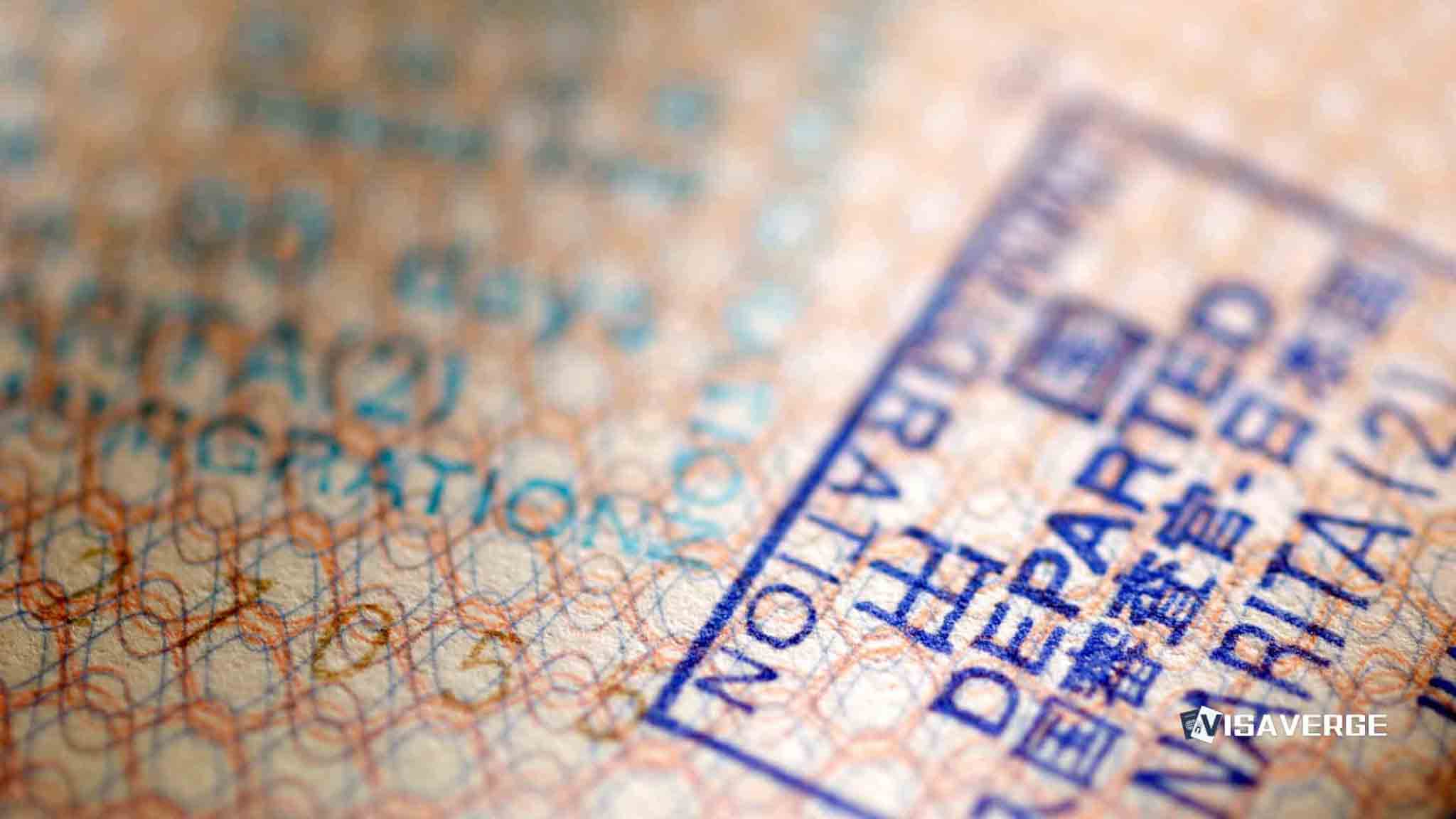Key Takeaways
• Starting January 1, 2026, a 1% federal remittance tax applies to cash-based international transfers within the U.S.
• Financial institutions must collect the tax, report sender details quarterly to the IRS, and face penalties if noncompliant.
• The tax affects all individuals, citizens and non-citizens; green card holders may claim refundable credits on taxes.
A new federal law in the United States 🇺🇸 will soon change how many people send money overseas. Starting January 1, 2026, a remittance tax will apply to cash-based international money transfers sent from within the U.S. This policy, part of the “One Big Beautiful Bill Act” (OBBBA) signed by President Trump on July 4, 2025, introduces a 1% excise tax collected by financial institutions at the point of transfer. This update marks a clear shift from past rules and affects millions of U.S. residents—citizens and non-citizens alike—who regularly send personal funds to family and friends abroad.
Background and Legislative Process
The new remittance tax took shape after months of heated debate and negotiation between the House and Senate. Earlier plans suggested rates as high as 3.5%. However, after many concerns arose about fairness and the possible impact on lower-income households, lawmakers agreed on a lower rate of 1%. Throughout these discussions, the law’s scope grew: early versions would have targeted mainly non-citizens or people unable to prove their citizenship at the time of transfer. In the final law, all individuals—citizens and non-citizens—pay the tax when sending covered cash remittances. The elimination of any citizenship-based exemption was a key point during the final Senate-House reconciliation.

“Estimates are [that] the remittance tax will collect over $9B in the next ten years…but this is just an estimate—not a guarantee,” noted a July 13th summary report by Democrats Abroad. While supporters see the tax as a way to help fund government needs and strengthen oversight over cross-border money flows, critics question both its fairness and its real ability to raise such sums.
What Exactly is Covered by the Remittance Tax?
Not every international money transfer from the U.S. now faces this new tax. To be taxed, a transfer must meet these conditions:
- The sender makes the transfer using cash at a bank, money transfer business, or other regulated financial institution.
- The transfer is sent from within the United States and is intended to be received in another country.
Examples of taxed transactions under the new law include handing $100 cash over the counter at a local money transfer store or using cash to buy a money order meant for a recipient overseas.
However, the following types of remittances are not taxed under the current law:
- Electronic bank wires (where money moves from one account to another directly)
- Debit or credit card payments from a U.S.-based account
- Online or app payments funded from a bank account or card
- Any account-to-account transfer processed strictly through digital means
The law’s supporters say these rules focus enforcement on the easiest-to-track activities, making sure regulated financial institutions can reliably collect and report the tax to the IRS.
How the New Tax Will Work: Process and Implementation
When the remittance tax goes into effect on January 1, 2026, anyone sending a covered cash remittance must pay an extra 1% to the federal government. Financial institutions—including banks, money transfer operators, and similar licensed businesses—are responsible for collecting this tax up front, remitting it to the IRS, and reporting sender details. These details must include:
- Name
- Address
- Social Security number (when available)
- Transaction amount
- Payment origin and destination
This responsibility means many financial institutions expect to upgrade their software, increase staff training, and update the materials customers see prior to the end-of-year deadline.
Institutions must submit quarterly reports to the IRS, listing every remittance subject to the tax and providing sender data. The IRS will then use these reports to check compliance and track cross-border flows.
If a financial institution does not collect or report the tax properly, it can be held secondarily liable and face penalties. The law places the main burden of collection on these businesses, not on the recipients or on informal, person-to-person transfers that fall outside the reach of regulated companies.
Who is Affected by the Remittance Tax?
The new law affects both citizens and non-citizens equally. Previous drafts would have exempted some U.S. citizens from the tax, but lawmakers decided to make the rule apply broadly instead. As a result:
- All individuals, regardless of immigration or citizenship status, will pay the 1% tax on covered cash remittances.
- Certain taxpayers—most notably “green card” holders (lawful permanent residents) who possess a valid Social Security number—may apply for a refundable credit on their U.S. tax return after paying the tax. Details about who qualifies and how to claim these credits will be published by the IRS in coming months.
This means that for many Americans living or working in the U.S. and sending money home—perhaps to countries like Mexico 🇲🇽, India 🇮🇳, the Philippines 🇵🇭, El Salvador 🇸🇻, or Nigeria 🇳🇬—the new rule directly increases the cost of supporting family members abroad, if they use cash-based services.
Example:
If Maria walks into a local money transfer store with $500 cash in January 2026 and asks to send the money to a relative in Mexico 🇲🇽, the store will add a $5 federal tax (1% of the amount). Maria’s transaction information will be reported by the transfer operator to the IRS. If Maria sent the same amount using an electronic bank transfer or paid directly by card from a U.S. account, the tax would not apply.
Policy Rationale and Criticism
Supporters of the policy say the remittance tax provides a new way to fund priorities like border security and can help discourage criminal activities like money laundering or untracked cash flows. They point to the projected $9 billion in new revenue over a decade as a much-needed source of federal funds.
Opponents worry, however, that such taxes often fall short of expected returns as people find ways to avoid them—by switching to informal, unregulated channels that are harder for authorities to police. “Ana sends $1,000 monthly… With proposed rates she’d pay $10/month extra—or $120/year—to help family,” says EasyFiling.us scenario analysis from June 6th. For many low-income migrant families, even this seemingly small extra cost adds up, especially when combined with other economic pressures and exchange rate changes.
Some advocacy groups warn that the new rule might:
- Push more users toward untracked, informal methods (like “hawala” or physically carrying cash abroad)
- Let less money reach families who depend on this support for daily needs, healthcare, or school fees
- Make it harder for authorities to monitor suspicious financial transfers, thus reducing transparency
- Damage trust between immigrant communities and mainstream banks
Financial industry leaders are calling on the government to provide clear rules soon, so they can manage new costs, train staff, and keep customers informed.
Refundable Credits and Exceptions
There are some limited exceptions in the law: certain individuals—including green card holders with Social Security numbers—can apply for a refundable credit if they’ve paid the tax but later qualify for an exemption. These credits will be claimed on the individual’s annual tax return to the IRS. Details on who is eligible and how to claim credits will depend on rules the IRS will set out before the 2026 tax season. Until then, taxpayers should collect all receipts and documentation for any covered remittance where the tax was paid.
If you are a green card holder or think you may qualify for a refund, it is important to look for announcements from the IRS and your preferred money transfer provider over the next several months.
Practical Steps: Preparation for Individuals and Businesses
With the rollout date coming fast, both individuals and financial institutions need to prepare.
For People Who Send Money Abroad:
– Review how you send funds. If you usually use a walk-in, cash service, compare this with electronic options (like a bank wire, app, or paying with your debit/credit card). Only cash-based services will trigger the 1% tax.
– Keep all receipts, documentation, and proof of payment, especially if you are a green card holder who might seek a refund in the spring.
– Watch for updated news from your regular provider and the IRS about refund eligibility and changes that may come before the rule becomes active.
For Banks, Money Transmitters, and Related Businesses:
– Upgrade internal systems and software to collect and remit the tax, and to report required information about the sender, before January 1, 2026.
– Train staff to answer customer questions and support those impacted by the rule.
– Update all customer-facing communications (including FAQs, emails, and printed materials) to explain the new rule.
– Stay alert for further clarifications from both the Treasury and IRS as technical guidance continues to emerge in summer and fall 2025.
Transitional and Compliance Considerations
Businesses and individual senders should finish these steps before year-end. Failure to comply—with collection, reporting, or refund handling—may trigger enforcement actions, audits, and penalties.
Lawmakers and regulators may still make small changes to some technical details or clarify gray areas in the coming months, especially as Treasury and the IRS roll out practical steps and guidance. However, after President Trump signed the law on July 4, 2025, the central policy is formally in place and major reversals are considered unlikely.
Frequently Asked Questions
Does every outbound transfer get taxed?
No. Only physical, cash-based international transfers processed by regulated businesses after December 31, 2025, are taxed under the new law. Digital or account-based outgoing payments, including those funded by debit or credit cards or via direct bank wires, are currently exempt.
Can I reclaim remittance taxes I paid by mistake?
Yes, in limited cases. If you are a green card holder (lawful permanent resident) with a Social Security number and you paid the tax but later qualify for an exception according to IRS rules, you can apply for a refund through your annual tax return. Specific instructions from the IRS will be published before the 2026 filing season.
Could the rules change again soon?
Technical clarifications or rule updates may come out before and after January 1, 2026, especially concerning refunds and how businesses handle compliance. The main parts of the law are already in effect, and further major changes would likely require new legislation.
Further Resources
To read the government’s official guidance and updates on implementation and refund eligibility for the remittance tax, visit the IRS Remittance Guidance Page. This site will have the latest forms, rules, and FAQ releases as they become available in the fall and winter of 2025–2026.
For additional analysis and advice about the U.S. remittance tax, VisaVerge.com has detailed summaries and scenario explanations to help families and senders weigh affordable options and stay in compliance.
Advice and Key Steps for the Months Ahead
If you send cash from the U.S. to friends or family in other countries, now is the time to:
- Think about using digital or electronic methods (bank wires, app-based payments, or card-funded solutions) to avoid the extra 1% tax if possible.
- Ask your money transfer provider how they plan to handle the new IRS reporting and tax collection rules.
- Save receipts for all transfers beginning January 1, 2026, especially if you think you may qualify for a refund on your federal taxes next spring.
If you represent a business that handles these transactions, finish all software, staff, and communications updates soon. Your ability to collect and properly report remittance taxes is now a legal duty, and you must follow all deadlines.
Summary
Starting with all qualifying cash transactions sent from the U.S. on January 1, 2026, the federal remittance tax will affect a large and diverse group of taxpayers. Some will see modest costs added to their transfers, while certain lawful permanent residents with Social Security numbers may later apply for refunds if they paid the excise tax by mistake. The law reflects complex debate about funding, fairness, and the practical risks of pushing people toward informal channels.
It is important to remember that technical guidance and new rules from the IRS will shape much of the day-to-day impact over the coming months. So, stay informed, keep good records, and seek professional legal or tax advice for your case. Regularly check trusted sources, such as official IRS updates and reputable news outlets like VisaVerge.com, to remain fully aware of your rights, duties, and options as the transition to the new system continues.
Always consult a licensed tax or immigration professional before making changes to how you send money across borders. Policy details may change, and personal circumstances matter.
(Article last updated July 15th by the VisaVerge.com immigration news team)
### Learn Today
Remittance Tax → A 1% federal excise tax on cash-based international money transfers sent from the U.S. starting 2026.
Financial Institutions → Banks, money transfer businesses, and licensed entities required to collect and report the remittance tax.
Cash-based Transfers → Money sent overseas using physical cash through regulated institutions, subject to the remittance tax.
Refundable Credit → A tax benefit that green card holders may claim to recover remittance taxes paid incorrectly.
IRS → Internal Revenue Service, U.S. federal agency responsible for tax collection and enforcement of remittance tax rules.
### This Article in a Nutshell
From January 2026, the U.S. will impose a 1% remittance tax on cash international transfers, affecting millions sending money abroad. Banks must collect and report taxes, impacting citizens and non-citizens alike. Eligible green card holders can seek refunds. Digital transfers remain tax-free, promoting electronic alternatives for overseas payments.
— By VisaVerge.com








The information in this article is not correct. The bill that passed, taxas 1% across the board as all “cash” remittances regardless of citizenship.
Hey, thanks for pointing it out. Our article was initially updated based of initial One Big Beautiful Bill information. It was later changed by the time bill got signed by Trump. We updated the article to reflect the latest changes. Thank you again for letting us know.